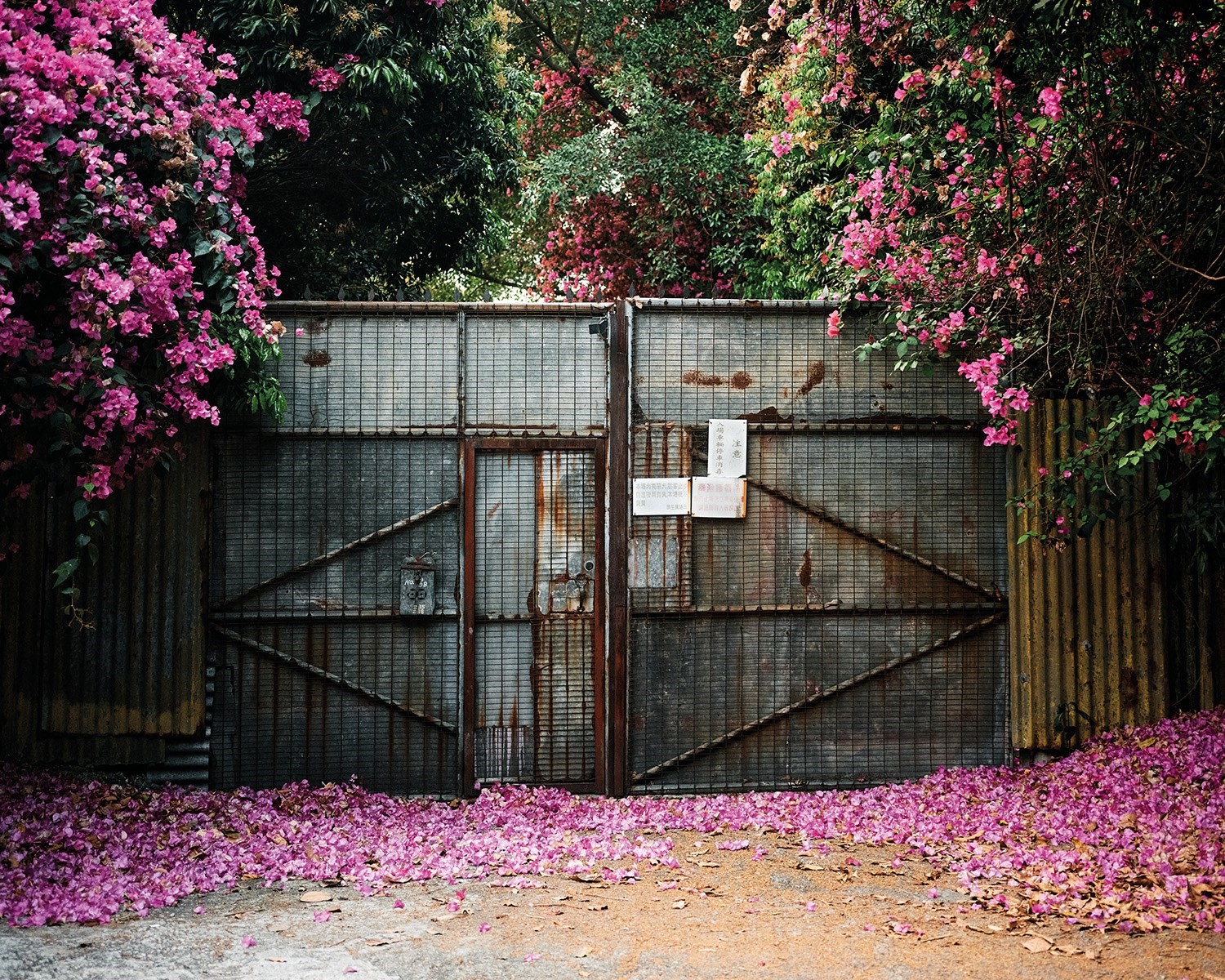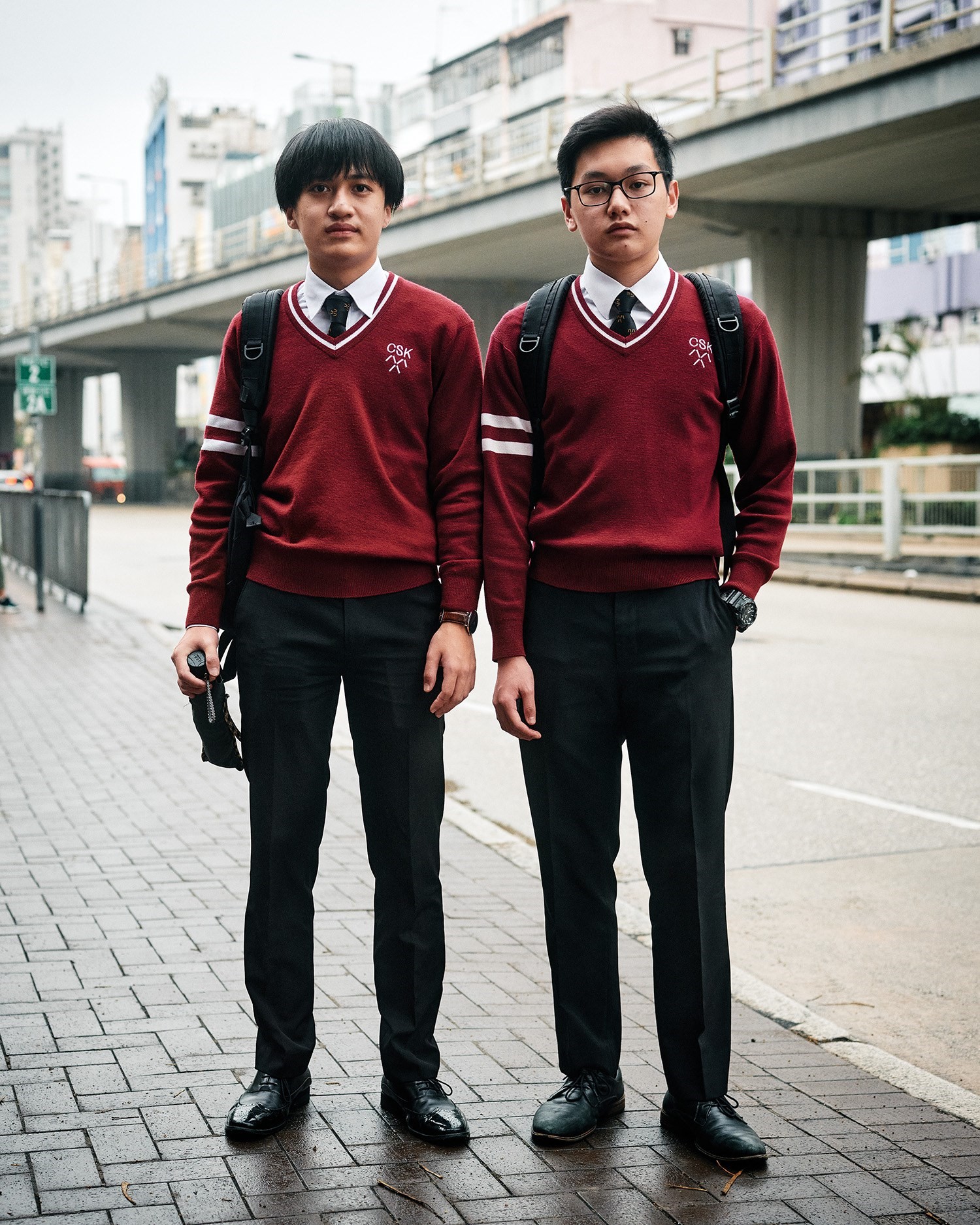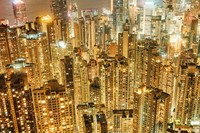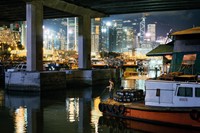I grew up dreaming of living in Hong Kong. I’m still not quite sure why. I think I watched a documentary about it in Geography at school and simply thought, ‘That’s where I want to live.’ After I left school at 18, I moved there for a year, working as an intern for a charity that helped recovering drug addicts, the majority of whom had been in the triads (the traditional organised-crime groups). I loved it: the food, the language, the culture, the hustle, bustle and unrelenting speed of the city; the omnipresent harbour, the planes of water, weaving around the various islands; the hazy light of the sun attempting to pierce through the smog; the concrete jungle that seemed in constant contest with actual jungle – tropical plants bursting from the pavements, blossoming in parks, and covering the mountains that acted as back gardens to many of the city’s towering housing estates, thriving in the humidity that often felt like stepping into a hot, wet blanket.
I returned several times over the next decade, toying every time I did with the idea of moving there permanently, though I never ended up doing it. When I last visited in 2019 to visit my brother, I returned to a very different city. Just before the pandemic, Hong Kong was gripped by the protests that followed the government’s decision to propose a bill that would have allowed extraditions to mainland China. Roads had been ripped up, MTR stations set on fire, walls were covered in graffiti attacking the Chinese government, and malls were filled with students and schoolchildren doing sit-ins and singing protest anthems. The city felt agitated, torn between pro-democracy and pro-China; friends who I previously chatted idly with now spoke passionately about politics and their burning desire for a free and independent Hong Kong. And yet there was a vague sense of hopelessness, too, sinking over the city like a cloud – for what could stand up against the might of the Chinese government? It felt like Hong Kong, along with the rights and freedoms of its people, were disappearing. And I felt desperately sad.
Since then, the British government – in a rare good move – opened a BN(O) (British Nationals Overseas) visa scheme for Hong Kong residents. Over 150,000 visas were granted by December 2022, and it’s estimated that estimated 320,000 Hong Kong residents will immigrate to the UK in a five-year period. One such resident is the photographer Wong Chung Wai. With a background in film (he worked in the industry for over 15 years, predominantly as a location manager and production manager), he picked up photography in 2020. Before leaving Hong Kong, he embarked on what was effectively a farewell tour of the city he’d grown up in, grieving it and saying goodbye. Gathered in a new photo book Hong Kong After Hong Kong, his photos captured – in a way that few photo projects have done for me before – the Hong Kong I knew and loved, filling me with nostalgia for the place.
Below, I spoke to Wong about his beautiful images, and his decision to leave Hong Kong.
Ted Stansfield: First off, I just wanted to say congratulations on your book. This is a slightly unnecessary aside, but I used to live in Hong Kong, and your photos made me very nostalgic for it. They’ve really captured the beauty of the city. Can you tell me about your relationship with Hong Kong?
Wong Chung Wai: Thank you, I am glad you like the book and feel connected to it in some way. This means a lot to me.
TS: Whereabouts did you grow up in HK?
WCW: I grew up in a town called Shatin, which is located in the New Territories. Like millions of others in Hong Kong, I grew up in one of those public housing estates.
TS: I gather that your parents arrived in Hong Kong after fleeing from China. Can you tell me about their story and their journey to get to HK?
WCW: My parents were both school teachers in a small rural village in Canton province. They left China with the wish of being able to make decisions for their own career and their own lives. It took a few days for them to walk from their village to the China-Hong Kong border. At midnight, while the guards rotated positions, my parents went into the water of Shenzhen Bay and swam across the water into Hong Kong.
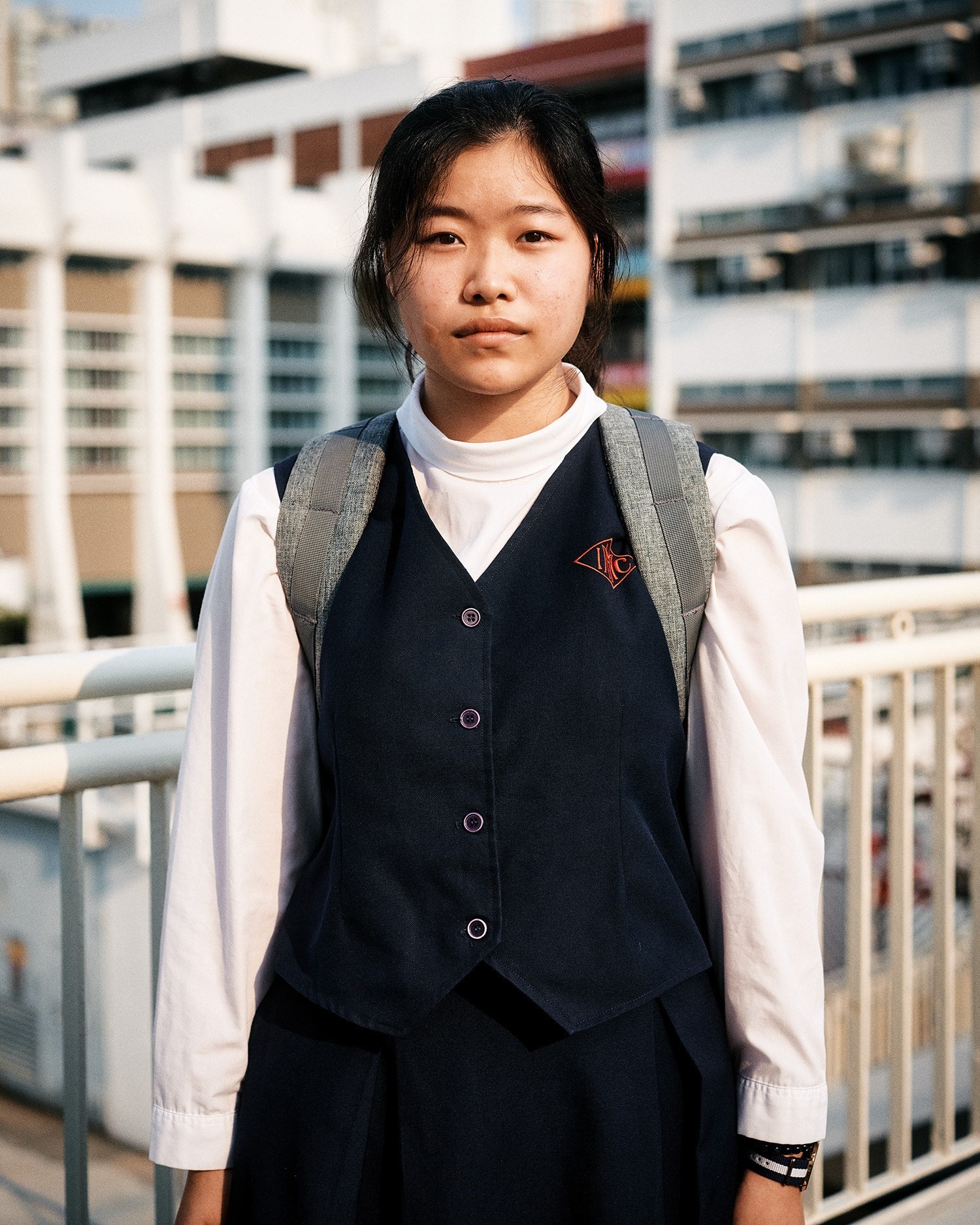
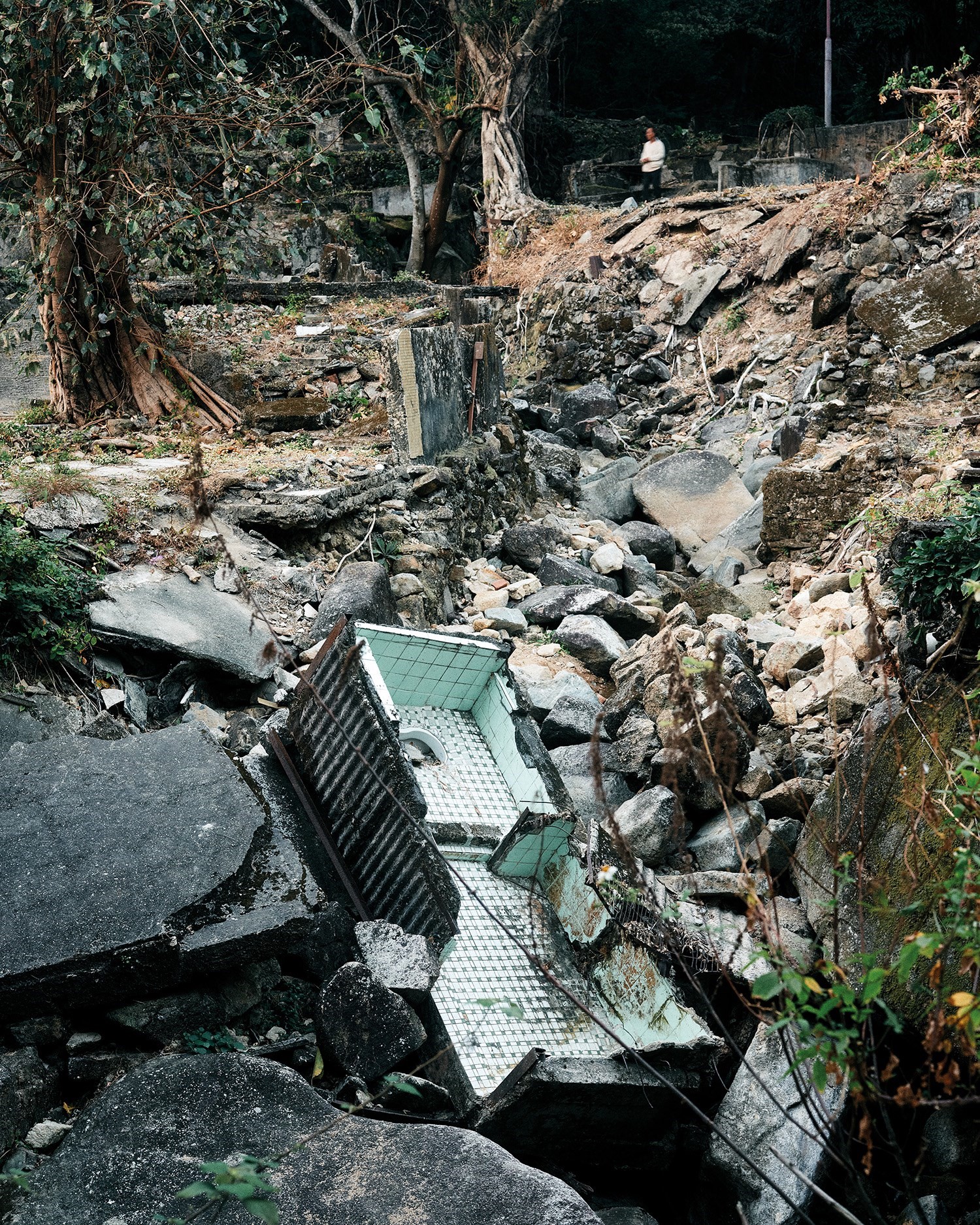
TS: In something of an echo of your parents’ story, you and your family left HK in 2021 – can you tell me about the decision to leave?
WCW: Although we are in very different stages in our lives, my decision to leave is not that different to my parent’s decision 40 years ago. However, I felt sad and disappointed when I left. I believe my parents felt more hopeful and positive back then.
TS: How did you experience this decision?
WCW: It was complicated. I felt heartbroken, with self-doubt, but I was stubborn enough to make this decision and carry on.
TS: How has it been moving to the UK?
WCW: Sometimes I struggle, sometimes I feel joyful. I believe these feelings will stay with me for my whole life.
TS: Has it changed the way you feel about Hong Kong?
WCW: Tough question. I think now I see the whole world very differently. I feel like I am an outsider here and there. I can see things from a distance. To me, it is weird but also something I would like to explore in my photography practice.
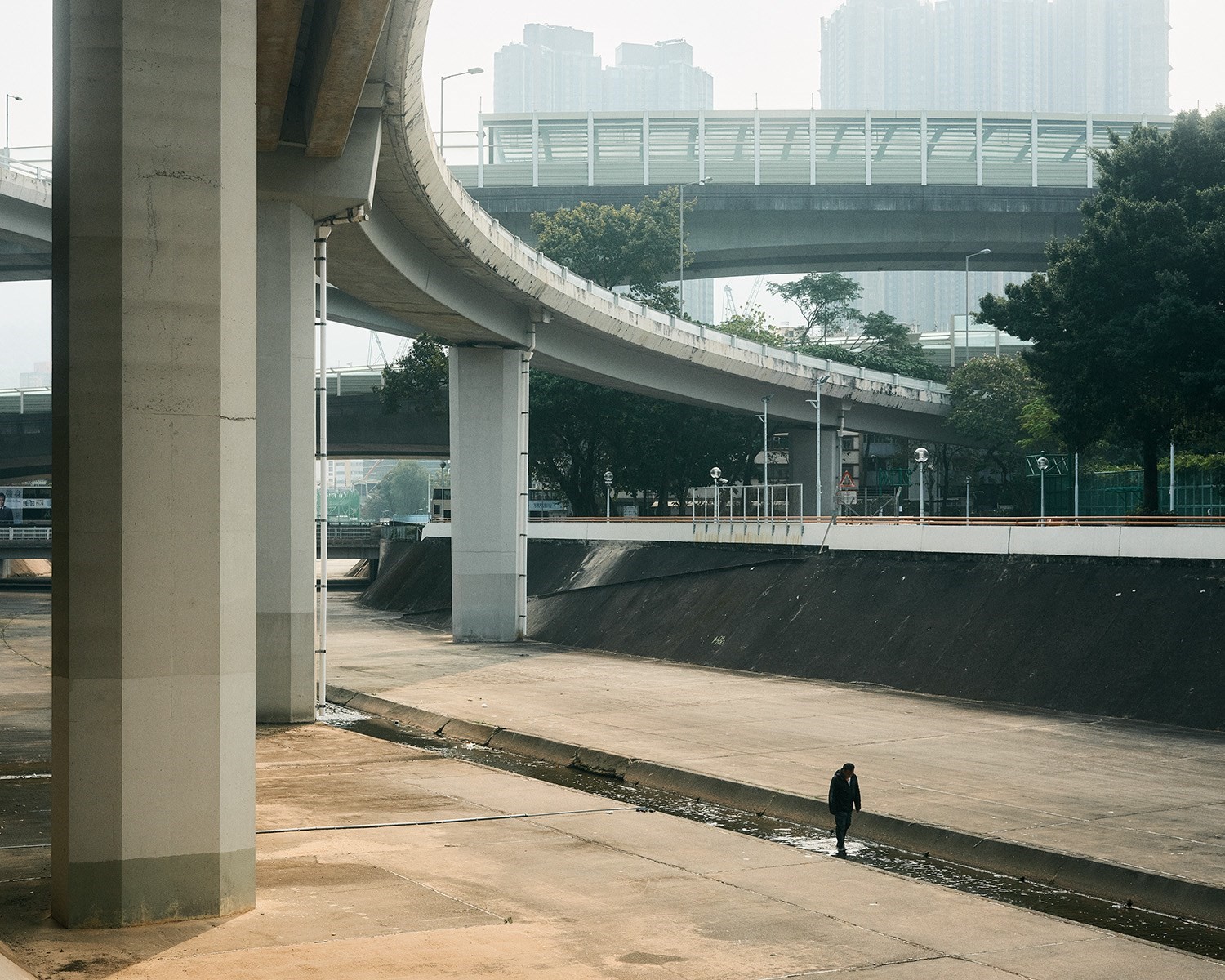
TS: You spent the six months prior to your departure taking these photos. Can you tell me about this process?
WCW: I wanted to take one last look at this place. It was a farewell, but at the same time, I was looking for something, evidence of a place I once lived in and loved. I had a list, which included directions, places, people, objects, feelings, and even some questions that I wanted to raise in the pictures. I think I enjoyed the time when I was alone taking these images. It gave me the time and the space that I needed to make the decision to leave. It was during Covid, and with the newly introduced national security law, apparently it was not the best time to walk in the city with a camera and ask strangers for a portrait. I often felt there was a lack of trust and nervousness between me and the subject. I can still see that tension in some of these images. But I am glad that I have captured that sense in the images.
TS: What were you trying to capture while you were out taking these photos?
WCW: An undeniable sense of complexity, powerlessness, uncertainty, fate, hesitation, and the loss of hope.
TS: There is a sense of sadness in these photos. A sense of loss. Maybe longing too? Is that right?
WCW: I agree. I think those were my own personal feelings at the time and they were somehow translated into the works.
TS: One of my favourite things about Hong Kong is the nature; how it invades the city, unlike other metropolises like London or New York. The mountains, the sea, the banyan trees, the bauhinia flowers ... It’s so beautiful, particularly when it all merges with the concrete of the buildings and roads. What’s your relationship with nature in Hong Kong and how did you want to depict it in these photos?
WCW: I have never thought of that, as I always consider myself a city person. I guess it was never my intention to tell this story through nature. But I was interested in the relationship between places and people with the existence of time. In a way, nature tells the power of time when it merges with man-made objects like buildings.
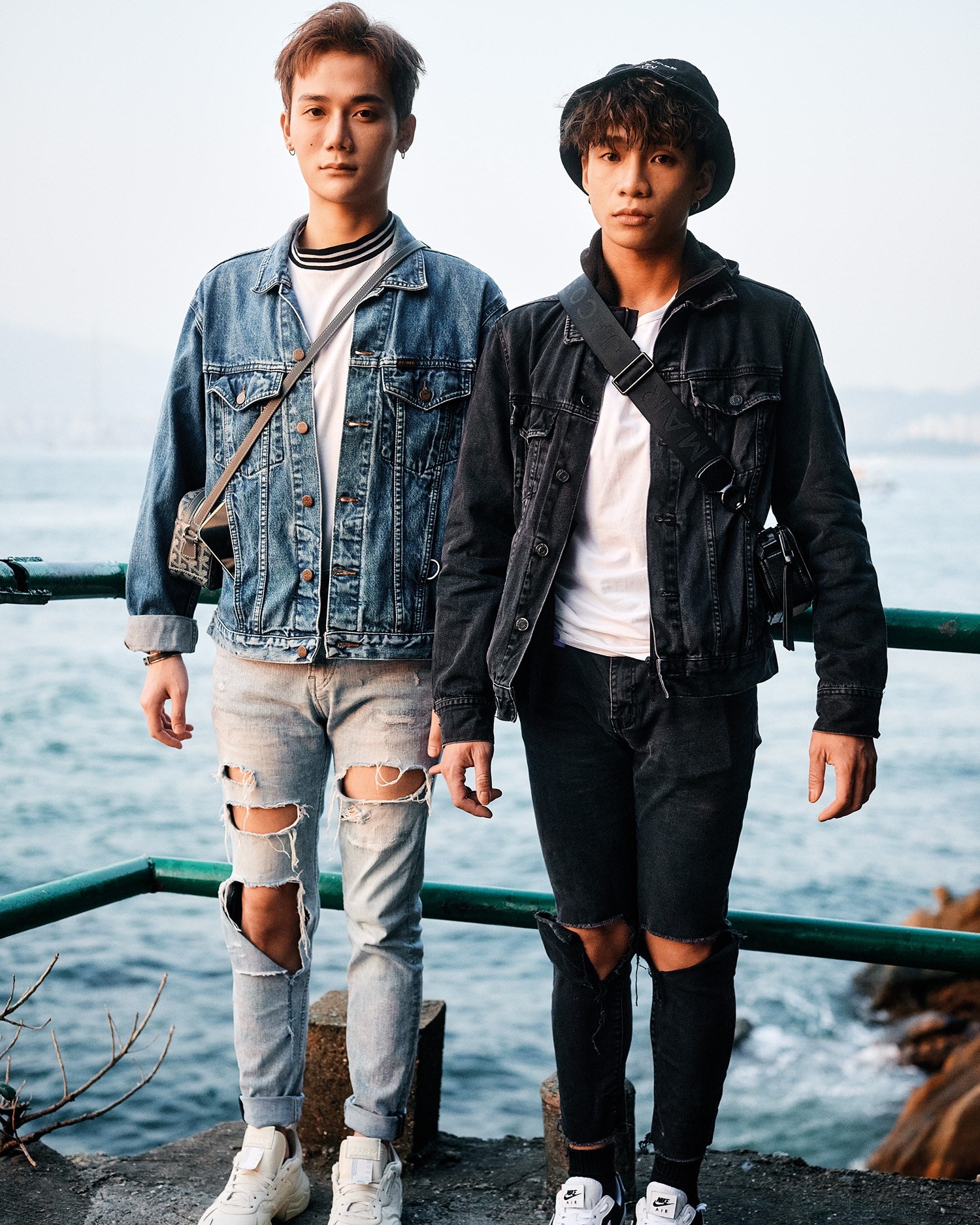
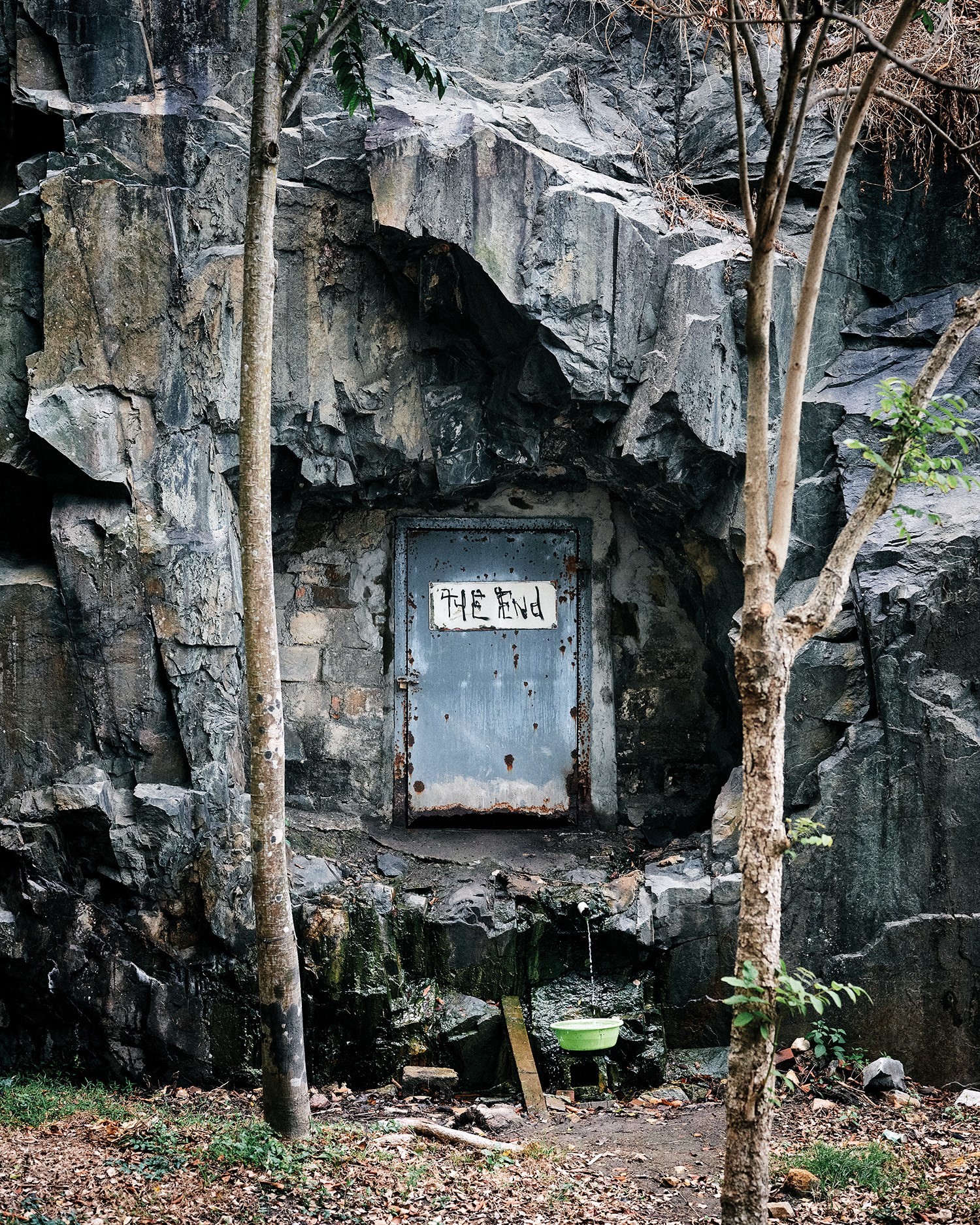
TS: What are some of your favourite things about Hong Kong? What do you miss most about it?
WCW: I can’t really tell. It was home. I always miss being alone at the harbour waterfront, I can feel the warm breeze and see the hazy yellow light from those small sampan boats.
TS: Do you have any favourite spots?
WCW: Any places that you can have the sense of the harbour.
TS: What are some of the best reactions you’ve had to these photos and this book?
WCW: It’s amazing when people feel connected with the images and start to talk about the experience they had in Hong Kong. And it’s also very touching when some of the viewers express their personal feelings about the place.
TS: What do you hope people will take away from it?
WCW: I hope people will always have Hong Kong in their minds, just like I do.
Hong Kong After Hong Kong by Wong Chung-Wai is published by GOST Books and is out now.
